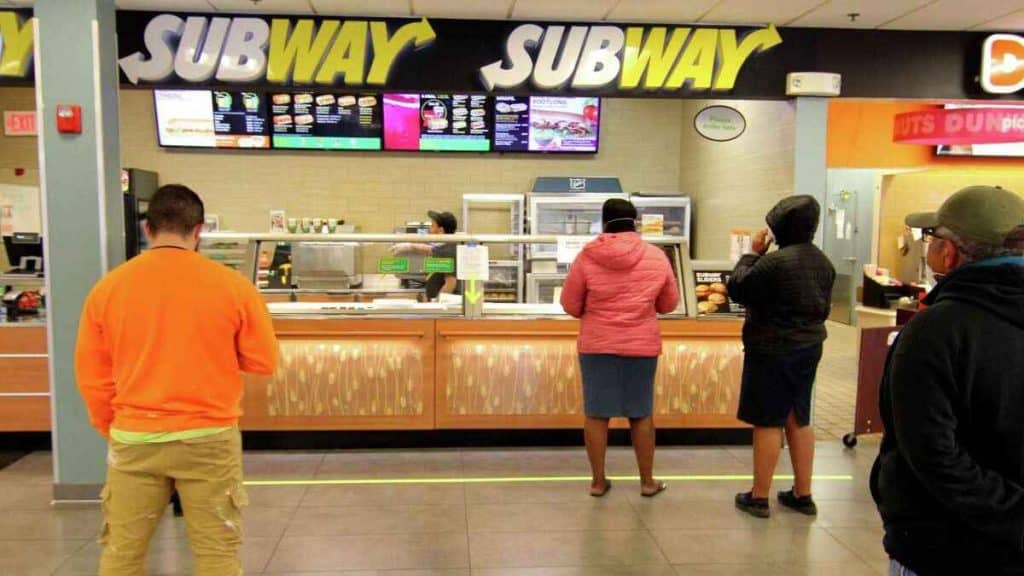The United States Equal Employment Opportunity Commission [USEOC] sued Subway franchises for discrimination against black employees. According to the federal agency, the sandwich franchise unfairly subjected black employees to harsh work environments.
The Lawsuit Recipients
The EEOC sued several Subway franchises, including North Carolina-based Subway franchises Bilal and Aaya Subway Inc. Also included in the lawsuit are H & F Subway, Inc. and L & H Subway, Inc. These franchises are accused of violating federal law by subjecting employees to hostile work employment. In hiring, they discharge black employees and discriminate against applicants. The EEOC alleges that the franchises discriminate against applicants due to their race and color.
The Lawsuit
The lawsuit filed by the EEOC showed that from October 2018 to August 2021, these Subway franchises’ owners left discriminating instructions. They ordered the general manager not to hire black employees, and for those who were already employed, they were to be discharged. The general manager was to do this solely because they were black. In addition, the commission alleges that the owner created a hostile work environment for employed people of color. Claims have been placed of the owner repeatedly disparaging remarks and stereotyping his employees based on racial bias.
The general manager of this Subway franchise, who is of black heritage, addressed the owner with this fact. The owner countered this by pointing out that the general manager has Puerto Rican ancestry and is not solely black. Despite the owner’s argument, the general manager stepped down due to the persistent presence of the owner’s racially offensive behavior.
This conduct violates the Title VII of the Civil Rights that protects individuals from harassment and discrimination in the workplace. Thus, the EEOC sued the US District Court against the named Subway franchises. However, through its conciliation process, the federal agency had first attempted to reach a pre-litigation settlement.
What the EEOC Asks for in a Settlement
The EEOC wants the former general manager and a class of employees to be given monetary relief. This would include compensatory and punitive damages and back pay of their wages. In addition, the commission seeks injunctive relief against the company to end ongoing discrimination and prevent future occurrences of such unlawful conduct.
According to the regional attorney for the Charlotte District of the EEOC, Melinda C. Dugas, employers cannot make management decisions with racial stereotypes. The Title VII Act of 1964 gives everyone an equal opportunity to be hired. Also, they are guaranteed retained employment regardless of race and color and a workplace free from racial hostility.
The Charlotte District of the EEOC enforces federal employment anti-discrimination laws in Virginia and North and South Carolina. The federal agency enforces federal laws that prohibit employment discrimination, thereby advancing opportunity in the workplace.
Conclusion
As a federal agency, the Equal Employment Opportunity Commission ensures workplaces are free of employment discrimination and racial stereotyping. It stands to ensure employers that make management decisions based on racial stereotypes are sued and made to do the right thing. A typical example is the agency’s lawsuit against several Subway franchises, including Bilal & Aaya Subway, Inc. and L&H Subway, Inc.
The EEOC accuses these franchises, among others, of subjecting Black employees to a hostile working environment and making disparaging remarks about them. The settlement price was for them to give the former general manager, who had resigned for the same reason, and several employees monetary relief. They were also to provide compensatory and punitive damages and end ongoing and future unlawful acts.
“If you have experienced instances of discrimination within a workplace or franchise setting, you may have the opportunity to seek compensation,” advises attorney Jason W. Power from Franchise.Law. This underlines the importance of addressing such issues and emphasizes the potential legal recourse available to those affected by discriminatory practices.


